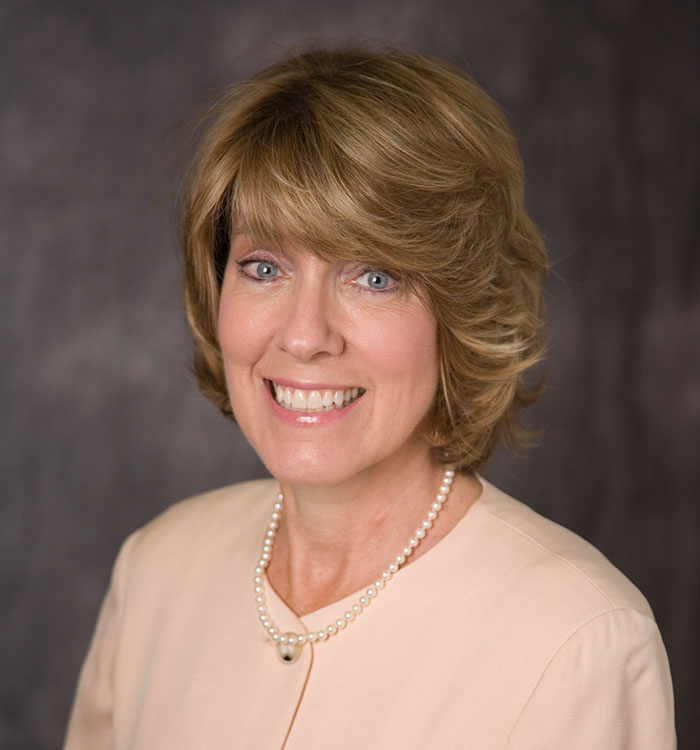University Hospitals Cochlear Implant Center Designated a Center of Excellence
February 15, 2022
Innovations in Ear, Nose & Throat | Winter 2022
The Cochlear Implant Center within the University Hospitals Department of Otolaryngology – Head and Neck Surgery is now a designated Center of Excellence (COE). One of the nation’s 10 largest implant centers, the world-class program continues to lead the way in providing patient-centered, value-based care.
 Alejandra Rivas, MD
Alejandra Rivas, MD Gail Murray, PhD, CCC-A
Gail Murray, PhD, CCC-AMore than 466 million people worldwide are affected by hearing loss, yet most are not benefitting from optimal hearing restoration technologies.
“The global penetrance for patients who need cochlear implants is just six percent,” says Alejandro Rivas, MD, Division Chief of Otology and Neurotology and Director of the Cochlear Implant Center. “Individuals often have success with hearing aids for many years, but there comes a time when they no longer provide enough benefit.”
Hearing aids work by amplifying sound but do not make speech clearer; cochlear implants, on the other hand, electronically deliver rich impulses to the auditory nerve. As hearing worsens, speech comprehension and cognitive ability often decline.
“The impact of hearing loss on socialization is tremendous,” Dr. Rivas says. “Humans need social interaction to maintain cognition and wellbeing, so it is paramount that patients receive appropriate management tailored to their specific needs.”
COE team members are aligned in offering patients streamlined access to cochlear implantation with excellent outcomes. Patient Navigator Rachel Harbarger, RN, guides each individual’s journey, confirming that all necessary preoperative testing, imaging and insurance approvals are in place. As a central point of contact, she is available to answer questions, facilitate scheduling, and support postoperative programming and auditory training.
“Successful cochlear implantation requires a multispecialty approach,” says Gail Murray, PhD, CCC-A, Co-director of the Cochlear Implant Center and Director of Audiology at University Hospitals. “From the moment the patient meets us, our goal is to minimize the steps patients need before we are able to move to surgery.”
Coordinating several audiologic, clinical or imaging appointments on a single day improves patient satisfaction and increases efficiency. Telehealth connectivity has also become an important tool, often providing the first touchpoint for patients new to the University Hospitals system.
Optimizing the successful outcomes of cochlear implantation involves expert speech and language therapy for listening skills. Lindsay Zombek, MS, CCC-SLP, LSLS, Cert AVT, and her team help evaluate potential cochlear implant candidates and set goals for postoperative rehabilitation. They work with patients to increase understanding of conversation, decrease social isolation and improve cognitive abilities.
“Our speech-language pathologists (SLPs) focus on improving listening and communicating,” Zombek says. “As patients experience hearing with their implant, they learn how to maximize their communication skills in real-world situations.”
Expanding access to Cochlear Implantation
In 2021, the center achieved a 60 percent year-over-year increase in cochlear implantation, with a 28-day reduction in average days from office visit to surgery.
Starting this year, the UH Cochlear Implant Center is officially recognized as a fully covered benefit of the employee traditional health plan. With COE designation throughout University Hospitals, strategic plans are in place to extend provider reach into Cleveland’s Center, Eastside and Westside regions.
Additionally, Dr. Rivas and his team are working with private practice audiology groups to develop a regional clinical provider network.
“If we are going to increase penetrance within our communities, we need to partner with local audiologists and allow patients to maintain their care with their long-established hearing specialist, who they trust,” he says.
Having developed common goals for preop testing and postop programming, partner audiologists complete the workups and refer their patients to University Hospitals surgeons for cochlear implantation. Patients return to their private practice office for the programming and listening therapy phase.
Leading-edge innovation
In collaboration with manufacturers, the center is implementing remote access to cochlear implant support. Using a cellphone app, patients can run diagnostic testing on their implant and deliver information remotely to their audiologist to determine if any next steps are needed. App functionality also allows patients to control volume levels or switch to preprogrammed settings that might be beneficial in crowded, noisy environments.
Additionally, two clinical research trials are under way within the center. In the first trial, researchers are investigating the slim-modiolar intracochlear electrode in hearing preservation.
“When we place a cochlear implant, there is a risk of losing whatever existing hearing remains,” Dr. Murray says. “Most patients have no hearing, but some have residual low- to mid-frequency hearing, which may allow hearing for tones but not enough for accurate speech understanding.”
Preserving the low-frequency residual hearing is correlated with better hearing outcomes. The purpose of the study is to evaluate preservation rates with the electrode in question.
The second trial is focused on the efficacy of a steroid-eluting electrode in reducing postoperative inflammation. For several months after surgery, the electrode delivers small amounts of steroids to the inner ear, with a goal of preventing the development of scar tissue, which may impede maximum outcome.
For more information, or to refer a patient to the UH Cochlear Implant Center, contact Rachel Harbarger, RN, Patient Navigator, at entcinurse@uhhospitals.org, or call 216-844-5333.
Contributing Experts:
Alejandro Rivas, MD
Division Chief of Otology and Neurotology
Director of the Cochlear Implant Center
Department of Otolaryngology – Head and Neck Surgery
University Hospitals Cleveland Medical Center
University Hospitals Ear, Nose & Throat Institute
Richard W. and Patricia R. Pogue Chair in Auditory Surgery and Hearing Sciences
University Hospitals
Professor Otolaryngology – Head and Neck Surgery
Case Western Reserve University School of Medicine
Gail Murray, PhD, CCC-A
System Director of University Hospitals Audiology Services
Co-Director of the University Hospitals Cochlear Implant Program
University Hospitals Cleveland Medical Center
Associate Professor of Otolaryngology – Head and Neck Surgery
Case Western Reserve University School of Medicine
Lindsay Zombek, MS, CCC-SLP, LSLS, Cert AVT
Speech Language Pathology Supervisor – Academic Region
University Hospitals Cleveland Medical Center


